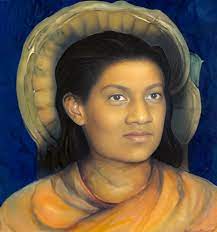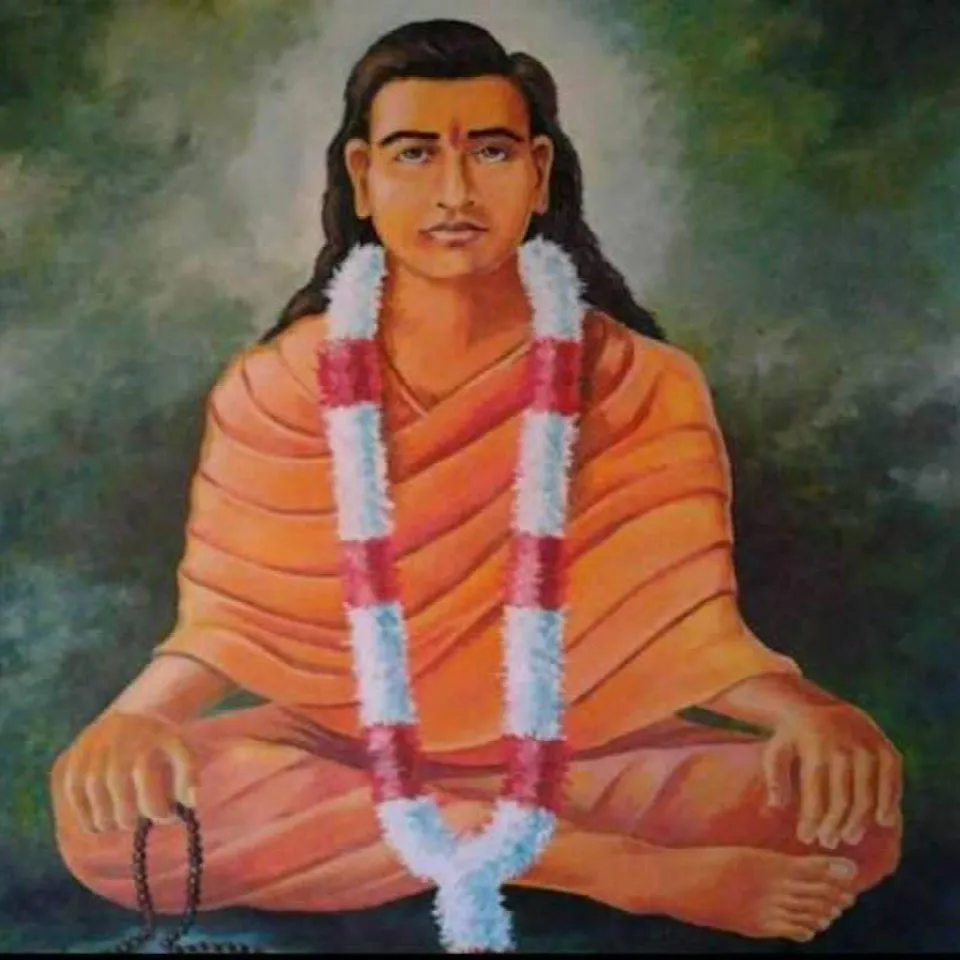BhimaBhoi was a prominent figure in Indian history, known for his contributions to Odia literature, philosophy, and spirituality. Born on December 13, 1850, in a small village called Khaliapali in present-day Odisha, he overcame numerous challenges to become one of the most revered poets and thinkers in the region. Bhima Bhoi belonged to the Mahima Dharma movement, a religious and philosophical tradition that emphasized the worship of the formless supreme being and the rejection of caste-based discrimination.
Early Life and Education
BhimaBhoi was born into a family of low social standing, facing the brunt of social discrimination prevalent in society during that era. Despite his disadvantaged background, Bhima Bhoi displayed a keen intellect and a deep spiritual inclination from a young age. His thirst for knowledge led him to seek education from local scholars and spiritual teachers, who recognized his potential and nurtured his talents.

You can read our another post on Devi Subhadra: The Goddess of Love, Compassion, and Devotion
Literary and Philosophical Contributions
BhimaBhoi is most renowned for his poetic compositions, which are characterized by their profound spiritual insights and philosophical depth. His verses are not just a reflection of his personal struggles and aspirations but also serve as a poignant commentary on the human condition and the nature of reality. Through his poems, BhimaBhoi sought to challenge the prevailing social norms and religious practices that perpetuated inequality and injustice.
One of BhimaBhoi’s most famous works is the “Stuti Chintamani,” a collection of devotional songs expressing his devotion to the divine and his quest for spiritual enlightenment. In these verses, he explores themes of love, devotion, and the search for ultimate truth, drawing inspiration from both traditional scriptures and his own personal experiences.
BhimaBhoi’s writings also touch upon the importance of self-realization and the need to transcend the limitations of the material world. His philosophy emphasized the unity of all beings and the divinity inherent in every individual, regardless of societal status or religious affiliation. Through his poems, Bhima Bhoi sought to inspire his readers to recognize their inherent worth and strive for spiritual liberation.
Legacy and Impact
BhimaBhoi’s legacy continues to resonate in Odisha and beyond, inspiring generations of readers and thinkers with his timeless wisdom and compassion. His fearless advocacy for social justice and equality remains as relevant today as it was during his lifetime, serving as a reminder of the power of literature and philosophy to challenge oppressive structures and promote human dignity.
In recognition of his contributions to Odia literature and philosophy, Bhima Bhoi has been honored with numerous awards and accolades posthumously. His verses are still recited and studied in academic circles, providing valuable insights into the history and culture of Odisha as well as the broader spiritual traditions of India.

FAQ For Biography Of Bhima Bhoi
Who was Bhima Bhoi?
Bhima Bhoi was a renowned 19th-century poet and saint from Odisha, India, known for his powerful and poignant poetry that expressed themes of spiritual awareness, social consciousness, and human equality.
What were the major contributions of Bhima Bhoi?
Bhima Bhoi made significant contributions to the Odia literature through his insightful and inspiring poetry that reflected his deep spiritual beliefs, advocating for social reform, equality, and the upliftment of the marginalized communities.
What themes did Bhima Bhoi’s poetry focus on?
Bhima Bhoi’s poetry often revolved around themes such as the universal brotherhood of humanity, the importance of self-realization and spiritual awakening, the condemnation of caste-based discrimination, and the promotion of social harmony and peace.
How did Bhima Bhoi’s work impact society?
Bhima Bhoi’s work had a profound impact on the society of his time and continues to inspire people today. His messages of social equality, spiritual enlightenment, and humanism have had a lasting influence on Odia literature and culture.
What is Bhima Bhoi’s legacy?
Bhima Bhoi is remembered as a visionary poet and saint who used his literary talents to bring about social change and advocate for a more just and equitable society. His legacy lives on through his poetry, which continues to inspire people to this day.
Conclusion
Bhima Bhoi was not just a poet and philosopher but a visionary whose words continue to inspire and enlighten readers around the world. His courage in the face of adversity, his commitment to social justice, and his unwavering faith in the human spirit make him a timeless figure whose legacy transcends time and space. In a world marked by division and conflict, Bhima Bhoi’s message of love, unity, and compassion serves as a beacon of hope and a reminder of the transformative power of literature and philosophy.
